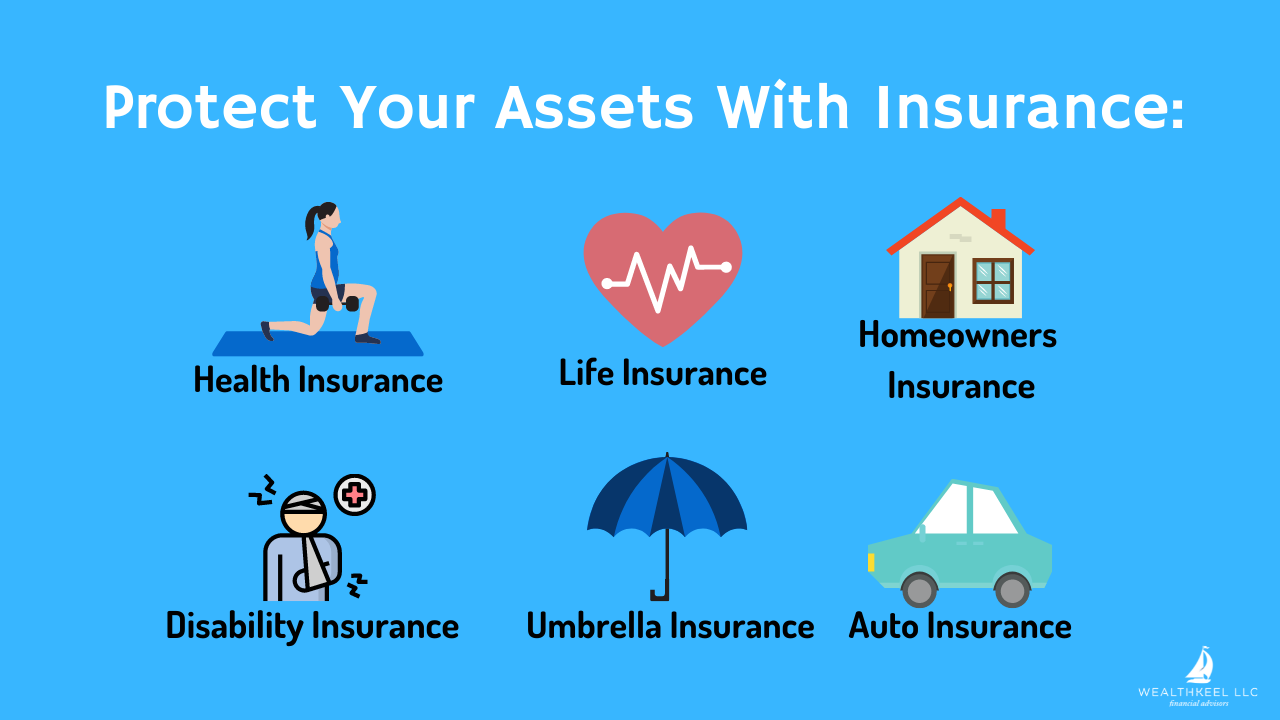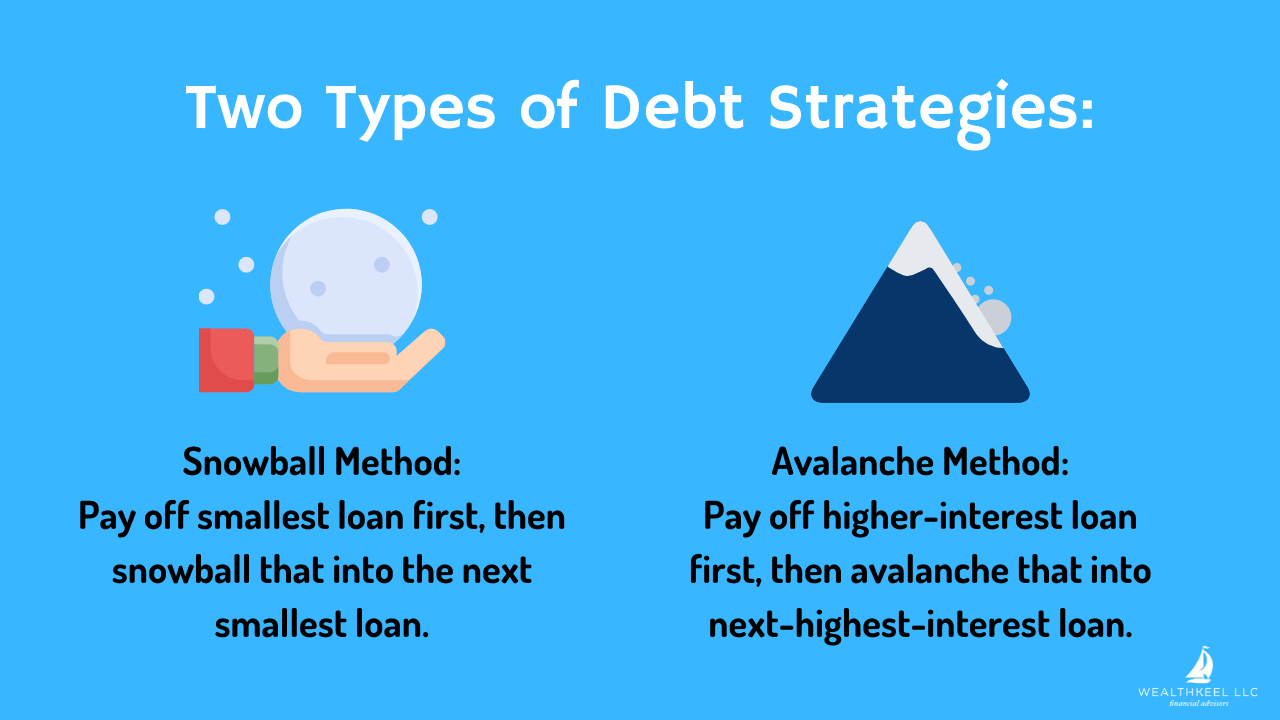Many physicians wonder how they can get ahead financially, but the truth is that building lifelong financial stability is less about having the best possible “trick up your sleeve” and more about having long-term dedication. After helping hundreds of physicians directly and thousands of physicians indirectly over the past decade, here are 13 of the top financial tips for physicians.
These strategies genuinely stand out as some of the best ways to make sure you have a solid financial footing. When you consistently make sound financial decisions, you’re setting yourself up for a lifetime of personal finance success!
Let’s dive in!
KEY TAKEAWAYS:
- Let’s start with the obvious: make more money, start saving early and often, and get proper insurance.
- Avoid burnout, living above your means, and accumulating debt when possible.
- Make sure your investment strategy aligns with your goals, then stick with it over the long-term.
- Don’t overspend at your wedding — then nurture your marriage.
Prefer video over the blog? We’ve got you covered! Watch our YouTube video as we dissect this blog post for you:
1. Increase Your Earnings
One of the best things you can do for your finances, both now and in the future, is to increase your earnings continually.
The more money you make, the more likely you are to make progress toward your financial goals.
Increasing your cash flow means that more money can go toward your student loans, building your emergency savings, paying off consumer debt, and contributing toward long-term savings goals like retirement or your children’s education.
Not sure how to increase your earnings? Pursuing a higher salary or a different job that pays more is an excellent place to start. You should also negotiate your salary to make sure you’re getting paid the way you should be. You might also want to explore part-time work in your field, monetize a hobby, or develop a passive income stream.
Pro-Tip: Take that first contract (and all contracts!) very seriously. Pay to have an experienced attorney review your agreement for you, because that contract will set your baseline for all future pays, bonuses, RVUs, and other benefits/perks.
2. Save Early and Often
Investing early and often is one of the best ways to set yourself up for financial success. Rather than trying to time the market, a history of steady, reliable contributions can help you grow your wealth over time. The longer you let your investments grow, the more money you’ll earn due to compound interest
However, you shouldn’t only be funding your retirement savings account early in your career (although that’s important!).
Building a healthy emergency savings fund is equally essential. Having three to six months of living expenses (or more!) on hand in a savings account can help to protect yourself against unexpected expenses like medical costs or car breakdowns.
An emergency fund also keeps you out of debt—a mainstay for long-term financial success!
3. Avoid Burnout
Too often, early-career physicians get caught up in the hustle. They work long, hard hours in positions that they may or may not be passionate about.
Even if the compensation is competitive, it’s still important to take care of yourself to preserve your health and happiness and protect your long-term earning potential.
Not only is burnout terrible for your physical and mental wellbeing, but it could also negatively impact your finances.
If you lose your passion for a career in medicine and choose to pursue a less lucrative field, your earning and saving potential could take a hit as a result.
While you should always prioritize your health over your finances, you can protect yourself from burnout by reconnecting with why you love your career and pursuing roles that are meaningful and fulfilling for you.
4. Protect Your Assets with Insurance
If you’re already on the right financial track, protecting your assets from risk is especially crucial.
Ensuring you have the right kind of insurance with adequate coverage is critical to long-term financial success. While insurance policies present an initial, up-front expense, they can save you plenty of money in the long run.
You never know what curveballs life will throw your way, and a robust insurance policy can help to protect you in the event of the unexpected, whether that means a health issue, car accident, or some other misfortune.
Some insurance policies to consider include:
- Life insurance: Life insurance can protect your finances and provide for your family in the case of your death.
- Disability insurance: Disability insurance coverage protects you financially if you become disabled and are unable to work.
- Auto insurance: A robust car insurance policy can ensure that your expenses are minimal if you get into a car accident and help you afford car repairs if your car is damaged.
- Health insurance: It’s essential to have good health insurance coverage to avoid sky-high medical costs. Most physicians receive health insurance through their employers.
- Pro-Tip: If a high-deductible health plan makes sense for you and your family, be sure to take advantage of a Health Savings Account (HSA).
- Homeowners or renters insurance: Homeowners or renters insurance protects your personal property in the event of a disaster and provides liability coverage if someone is injured on your property.
- Umbrella insurance: In short, every physician should have an umbrella policy. The coverage is very affordable — on average, $1,000,000 in coverage will run about $250 per year.
Of course, you also need to have Medical Malpractice in place, but you should also understand your policy.
5. Live Below Your Means
It’s hard not to want to celebrate when you first start leveling up in your career and making a “real” salary. This temptation can be especially true if you’ve spent years earning a modest income and struggling with student loans.
Unfortunately, that celebration can often slide into a lifetime of overspending and bad money habits. That’s why it’s so essential to prevent lifestyle creep to stay on track for your financial goals.
Even if you’re continuing to increase your earnings, it won’t help you financially if you don’t prioritize saving, paying off debt, and setting aside money for future short-term and long-term goals.
In other words, if you’re burning through each paycheck, you won’t be able to achieve financial stability. To keep spending at bay, it’s a good idea to set a budget each month and stick to it.
6. Create an Investment Strategy that Matches Your Goals — And Stick With it
The last thing you want to do is save a healthy nest egg, only to limit yourself by not having a clear investment strategy that aligns with your goals.
Too many physicians are flying blind when it comes to investing. They choose general target-date funds in their 401(k), and the buck stops there. Having a more in-depth financial plan that focuses on long-term goals and a diverse portfolio is vital. In full disclosure, a target-date fund is not a bad idea, and it may be one of the best inventions in the investing world in quite some time. I am advocating for a more customized but still simple portfolio (4-5 funds).
Once you have a strategy, it’s essential to stick with it no matter what the market does. Too often, investors panic and sell their assets when the market is down, even if they could potentially recover given enough time.
If you’re feeling worried, talk to an advisor, your 401k/403b advisor, or another sounding board to voice your concerns before making any final decisions. Given a long enough timeline (10 years+), the market has a pretty good track record. Don’t interrupt your compounding interest!
7. Get Out Of (And Avoid) Debt
Student loan debt is a more significant burden for young people than ever before, and it’s even worse for young medical professionals who have taken out extensive loans to obtain their degrees. If you’re saddled with student debt or other loans, it’s a good idea to put together a loan repayment plan and get started as soon as you can.
Some debt repayment strategies include (assuming you are not going for PSLF on your student loans!):
- The snowball method: When using the debt snowball, you start by paying off the smallest loan you have. Then, once it’s paid down, you “snowball” those monthly payments into the next-smallest loan until they’re all paid off.
- The avalanche method: When using the debt avalanche, you start by paying off your highest-interest loan. Once it’s paid off, you “avalanche” that payment down to the next-highest-interest loan.
While paying off student loans and other types of debt should be a financial priority, you should be sure to evaluate your financial circumstances before jumping into paying off debt.
For example, during the pandemic, interest and repayment requirements were paused on federal student loans thanks to the CARES Act. In that case, it may have made sense to redirect regular payments to building your emergency fund or preparing to buy your first home.
In other cases, it may also make sense to build up an emergency fund or even begin investing before you pour all of your resources into paying down debt.
8. Get Married Without Breaking the Bank
In decades past, it used to be the responsibility of the bride’s parents to pay for wedding festivities, but that’s no longer always the case.
More and more couples are getting married later in life and deciding to pay for the wedding themselves. Weddings have also become much more expensive (the average reception ringing in at $35,000 in 2024), and parents are now often already helping their young-adult-aged children out with their college educations, leaving little funds left to contribute to a wedding.
Some strategies to save money while wedding planning include:
- Setting a budget: It’s essential to set a realistic budget based on your savings. You should be honest with yourself and think about the type of wedding you can truly afford, and budget accordingly.
- Keep track of expenses: Once you have a budget in place, it’s a good idea to keep careful track of your wedding savings by putting it into a special account that neither of you can touch.
- Automate savings: If you can schedule that savings to be pulled from both of your paychecks automatically, this will help ensure that the money is actually being saved every month.
Pro-Tip: Don’t go crazy with flowers! They die and no one ever brags about how “cool” the flowers were. I am shocked by how many people spend thousands of dollars on flowers.
9. Minimize Education Costs For You & Your Children
It’s no secret that education costs are increasing, so if you’re currently in school or considering ongoing education as a physician, it’s crucial to weigh the cost of your education with the value you’re getting. Finding low-cost options that still have a high ROI is critical.
Balancing education with financial concerns is also an important consideration when it comes to your kids. As you start saving for their college education, you should talk about education, savings, and debt.
Emphasize that the education savings you’re building as a family are there to help them keep the amount of debt necessary to a minimum. But that it’s still a top priority to find a college that fits within your budget and helps keep you/your child out of debt.
It’s paramount that they understand the importance of using the college savings you have available wisely. No matter what educational path they pursue, discussing the costs and benefits of a college education will help to set them on a solid financial path in the future.
10. Give Your Children a Financial Head Start
As a parent, one of the best things you can do to make your child’s life easier is to educate them about personal finance and credit from an early age. Some ways to increase your child’s financial literacy and build good money habits include:
- Opening a checking and savings account: A bank account is an easy way to introduce financial responsibility with little risk involved. You can teach them to pay for purchases using their debit card, spend their funds wisely, and stash away savings in a separate account.
- Encourage them to get a job: Part-time jobs are a great way to gain real-world experience and develop a good work ethic. Having a steady income can also help your child qualify for financial products like credit cards.
- Pro-Tip: Once they have income, incentivize them to save to a Roth IRA and match their contributions. If you want to be the cool parent, give them the 100% match 😉
- Add them as an authorized user: If your child isn’t quite ready for their own credit card, you can add them as an authorized user on your credit card. Doing so can help them to establish good credit history and teach them financial responsibility.
- Pro-Tip: You can add a limit to their card; for example, little Suzie can’t spend more than $500 on her card. This avoids the concern of Suzie buying the newest iPhone with her friends.
- Put utility bills in their name: For older children and young adults still living at home, putting utility bills in their name can give them experience with bill-paying and financial responsibility. While bill-paying doesn’t usually build credit, some services like Experian Boost will also let individuals report on-time utility payments to raise their score.
- Maintain a permanent home address: Having your child list your home as their residence will make them more favorable when applying for a credit card than having to list four different addresses within four years.
11. Raise (Or Maintain) Your Credit Score
Lenders and credit card companies use your credit score as an indicator of your riskiness as a borrower. The better your credit score, the more financial products you qualify for, including auto and mortgage loan rates, rewards credit cards, and more.
If your credit score isn’t where you want it to be, you should take steps to raise your score by making on-time payments each month, reducing your credit utilization, and lowering your debt to income ratio.
If you already have excellent credit, stay the course! A good credit score can unlock other financial opportunities and save you plenty of money in interest over time.
12. Pursue Low-Cost Lifestyle Options
Expensive hobbies are one of the fastest ways to use up your cash flow and drain your savings. Unfortunately, accruing pricey hobbies is easy to do as you get older!
The good news is that you don’t need to spend a lot of money to stay engaged and have fun. If possible, you should try to find hobbies that fulfill you for minimal cost.
Hobbies like hiking, exercise, reading, or hosting game nights with friends can bring you joy and add another layer of meaning to your life without hurting your wallet. Some hobbies can even bring in another stream of revenue!
While it’s important to have fulfilling hobbies and interests outside of work, you should be sure to balance those hobbies with your financial goals and think about what actually makes you happy.
13. Nurture Your Marriage
It’s no secret that there are plenty of financial benefits to being married. While you shouldn’t stay in a relationship that you’re unhappy with, it’s a good idea to put work into your marriage to protect both your emotional and financial wellbeing.
Not only are married couples statistically shown to have a higher net worth, but they’re also generally happier.
It seems like a win-win!
In all seriousness, marriage has several financial benefits that range from having a dual income to care for kids and cover expenses, to tax breaks, to just being able to balance one another when making big financial decisions and budgeting.
While it can be easy to put romantic relationships on the back burner when faced with the demands of family, your career, and other pressures, nurturing and developing your marriage can pay enormous dividends and shouldn’t be neglected.
And as a physician, I know you love a good “asset protection” tip, so here is the best one I’ve got for you: GO ON DATE NIGHTS WITH YOUR SPOUSE! ❤️
If you’re looking to kick off your personal finance voyage, these 13 steps are an excellent place to start. Best of luck on your journey!
Looking for a more thorough all-in-one spot for your financial life? Check out of free eBook, A Doctor’s Prescription to Comprehensive Financial Wellness.
Disclosures


